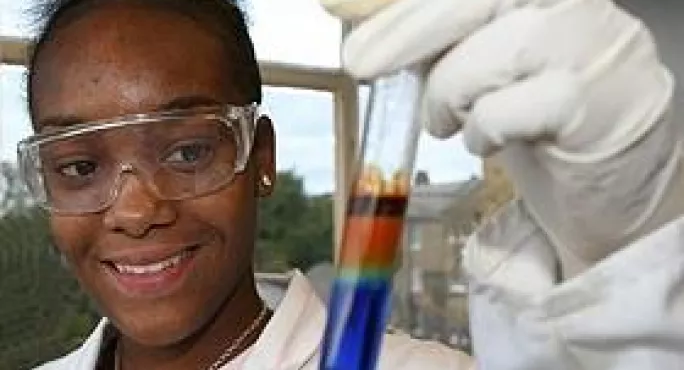Curriculum leaders have been warned not to put at risk the number of 16 to 19-year-olds studying science in schools with the advent of the National 4 and National 5 qualifications.
In its final “state of the nation” report on the pool of students taking mainstream science and maths before entering higher education, the Royal Society hails the way science is taught in Scotland.
Its figures reveal that Scotland is way ahead of the rest of Britain: 50 per cent of the age group take Highers or Advanced Highers in the core sciences, a proportion that has remained stable over three years. This contrasts with 37 per cent taking A-levels in Northern Ireland, 28 per cent in England and 27 per cent in Wales (2009 figures).
If maths and the sciences are combined, those taking the two subjects at Higher and Advanced Higher rise to 60 per cent in Scotland; the A-level equivalents are 44 per cent in Northern Ireland, 37 per cent in England and 34 per cent in Wales.
More students taking one or more of the sciences do so in combination with maths in Scotland than in any other part of the UK, the figures show, thus enlarging the pool of potential undergraduates.
The Royal Society, the UK’s academy of science, is concerned that low levels of participation in the sciences and maths in school mean that not enough people will go on to study them at university, leading to fewer science teachers and a further decline in the number of senior pupils taking the subjects.
“A perpetual cycle of too few of these students feeding through to becoming specialist teachers in schools and colleges needs to be broken,” Paul Nurse, president of the Royal Society, said.
He called on the rest of the UK to emulate the high levels of student participation in science and maths in Scotland, although shortages of science and maths teachers in England and Wales is said to be one of the reasons for the poor take-up of the subjects.
The tradition of Scottish students taking five Highers while pupils elsewhere study only three A-levels is part of the reason for the high participation levels in Scotland. But the report says that the Scottish Intermediates, which are being replaced by new qualifications from 2013- 14, have also boosted the numbers moving on to science.
The report notes: “It is evident from dialogue with the Scottish Government that Scottish Intermediates have enhanced progression to Highers, leading to greater levels of participation at Higher level than would have been the case had they not been available.”
The Royal Society goes on to say: “The Scottish Government should ensure that, in reforming its qualification system to suit the new Curriculum for Excellence, Intermediates are replaced by a similar and equally successful option.”
Professor Dame Athene Donald, chair of the Royal Society’s education committee, commented: “We need to identify the factors that make the Scottish education system so successful in encouraging the uptake of science subjects in order to inspire the next generation of students to commit to scientific study from school to university”.
She described as “deeply worrying” the low levels of A-level science students.
neil.munro@tes.co.uk.
- Original headline: Royal Society warns against jeopardising our science record


